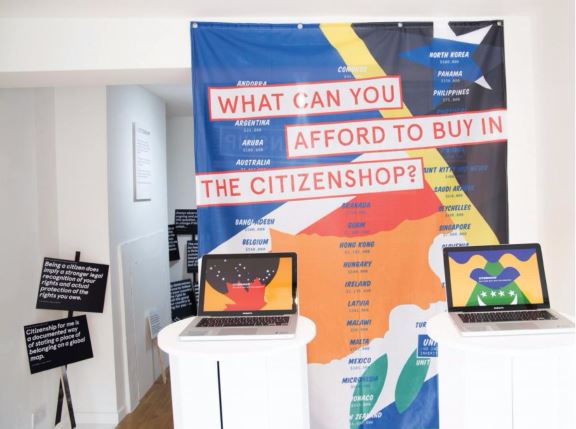 What can you buy?
What can you buy?
For Nele, one of the key objectives was to highlight the little known practice of acquiring citizenship ‘by investment’. Many countries in the world – including the UK – ‘sell’ citizenship to those who can afford to invest a specific amount of money in the country. If someone has enough money to buy a certain number of government bonds or to purchase an expensive piece of property, they can bypass normal naturalization procedures and get citizenship much faster and without many requirements – such are residence in the country, or knowledge of its language or culture. Basically, those who can afford it, can ‘buy’ citizenship.
Here is what Nele had to say about this ‘citizenship by investment’ industry:
Agnes then asked Nele how these programmes work:
Citizenship and migration have been very much on the political agenda, but we haven’t really heard much debate about the ‘citizenship by investment’. Agnes asked Nele why she thought this was the case.
Explore ‘citizenship by investment’ programmes further on the 5th floor of the Tate Modern, London, between the 14th and 19th of March, 2017.
Visit Nele’s Citizenshop online, at www.citizenshop.org
Read a longer version of this conversation [pdf]
Visit Nele’s Citizenshop online, at www.citizenshop.org
You can also find out more by watching this video:
Who Are We 2017: Citizenshop, by Nele Vos (SUBTITLED) from Counterpoints Arts on Vimeo.
Here you can explore how visitors engaged with the ‘Citizenship by investment’ installation during the event at the Tate Modern between 14 and 19 March 2017.
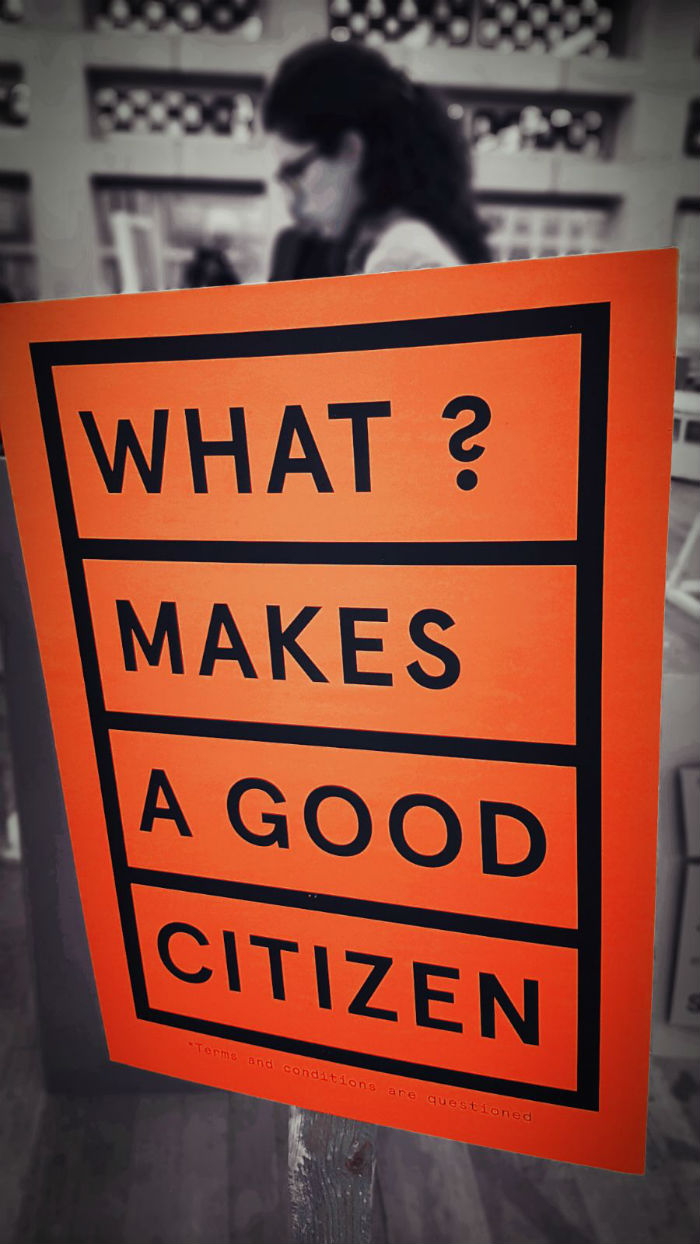
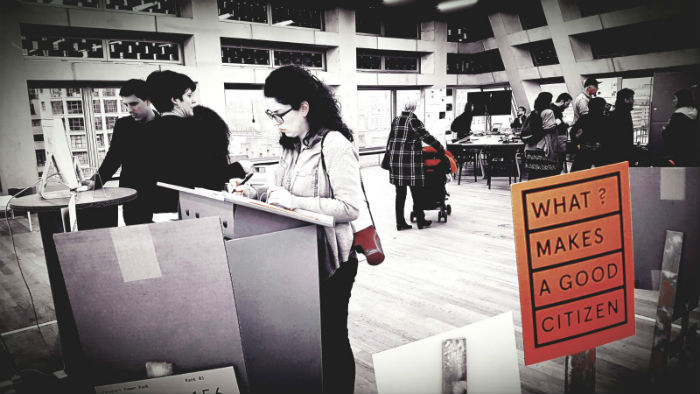
As part of the installation participants were invited to interact with the online interface and to reflect on the question: ‘What do you think makes a good citizen’?

More than 75 responses were collected, including from a group of Norwegian students, Londoners, Europeans, and others. Many participants posted reflections about their own sense of belonging. But others reflected upon aspects of citizenship that evade national borders and state-led responsibilities, and communicated a sense of the good citizen as someone who enacts diversity, openness and respect. Here’s a few comments:
I am (citizenship) Macedonian Living in (Nation) the UK
A good citizen is: Someone who brings a different point of view and extends the capability of the nation to strive.
*
I am (citizenship) Turkish Living in (Nation) the UK
What makes a good citizen is: Solidarity with the community and respect to the environment, cultural heritage, and the rights of the people.
*
“I am (citizenship) British Living in (Nation) the UK
What makes a good citizen is: A healthy sense of social contract, what you give up and what you get for your citizenship.
-Respect for others
-Empathy and compassion
-Being part of community, something bigger than yourself.*
I am (citizenship) Dutch Living in (Nation) the UK
What makes a good citizen is: A good citizen adapts to the nation of immigration and she or he brings her background with them to share experience and knowledge. A good citizen contributes to the nation and to the world in what way is the best for her/himself and the people the citizen is living with (humans in the world).
*
I am (citizenship) American Living in (Nation) USA
What makes a good citizen is: Action with a moral conscience; We cannot avoid different opinions (and my country is arguably founded upon the tension between different opinions) but one ought to at least believe in something that goes beyond cowardice or exploitation of other...And then take steps towards those ideals.
*
I am (citizenship) British Living in (Nation) United Kingdom
What makes a good citizen is characterized by:
Removal of greed
Understanding what you have and what you can offer
Questioning systems.
Others posted their views, directly reflecting on the effect that the installation had upon them:
I am (citizenship) Maltese/Planetary Living in (Nation) Malta, the UK, Spain
What makes a good citizen is: Putting humanity before nationality, race and class. Freedom of movement will not exist until all passports (and citizenship) are of equal value. Fifa – style passport rankings are an insult to the people who cannot travel or migrate safely. Thank you for this thought –provoking exhibition.
There were two other responses that were particularly interesting, highlighting very different approaches to citizenship. To the question of what makes a good citizen, one participant responded: ‘A good citizen follows the laws and customs of the country they live in...’ Another, however, responded that a good citizen is ‘someone who questions the rules to improve the lives of others’.
These two responses speak to an interesting dilemma. Does being a ‘good citizen’ always mean ‘following the law’, or does it sometimes necessitate questioning and challenging laws? After all, when civil rights activist Rosa Parks refused to give up her bus seat, she was challenging the laws and customs of American society. But was she not in fact being a ‘good citizen’ by doing so?
Question: What do you think makes a good citizen? Does it sometimes necessitate the questioning and challenging of laws and customs?
Question: Does this installation make you think differently about citizenship?
If you’re interested in these kinds of debates, you might be interested in The Open University course Understanding politics: ideas and institutions in the modern world.
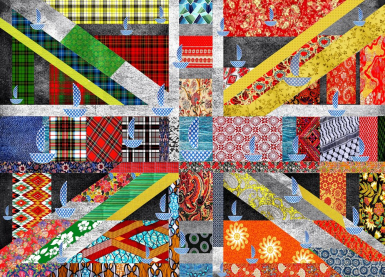

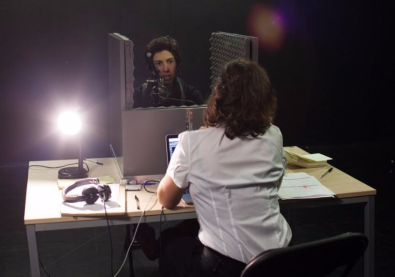
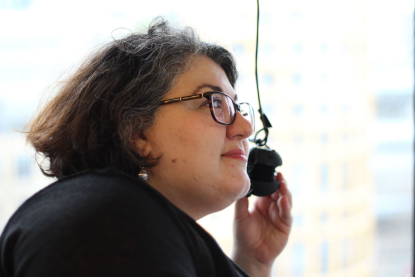
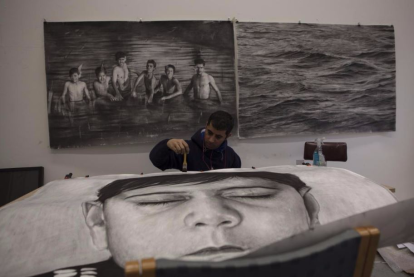
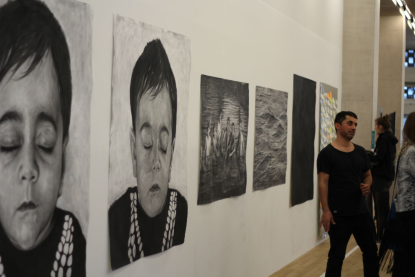
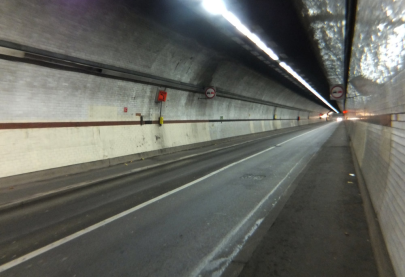
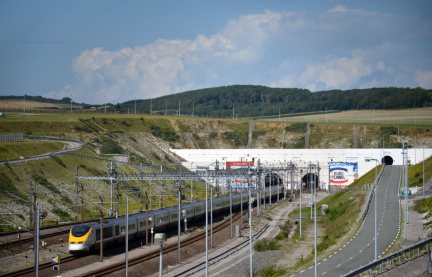
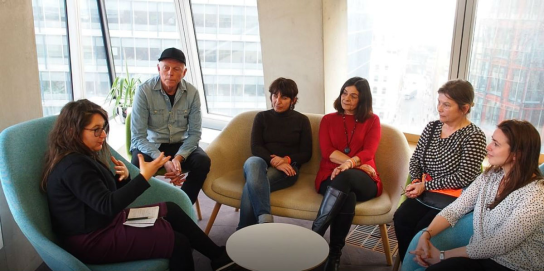
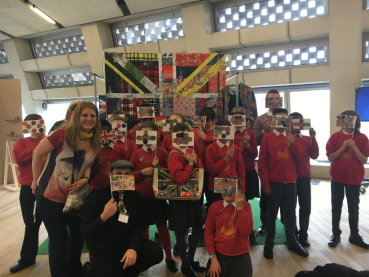
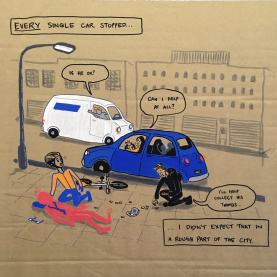
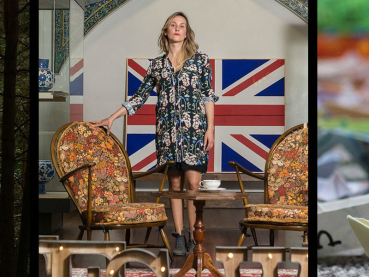
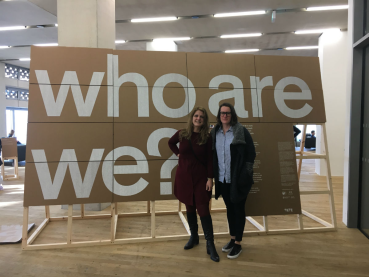
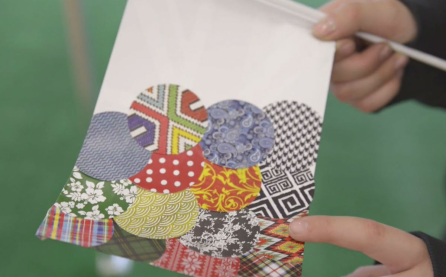
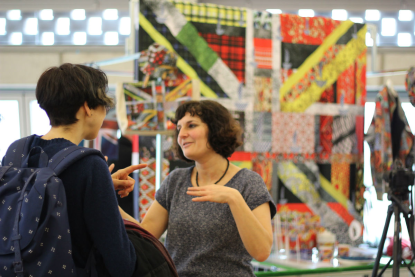
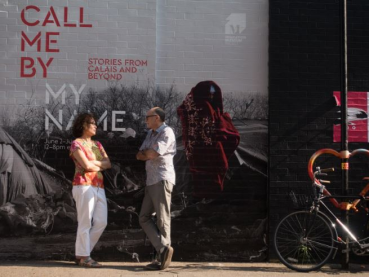

Rate and Review
Rate this video
Review this video
Log into OpenLearn to leave reviews and join in the conversation.
Video reviews